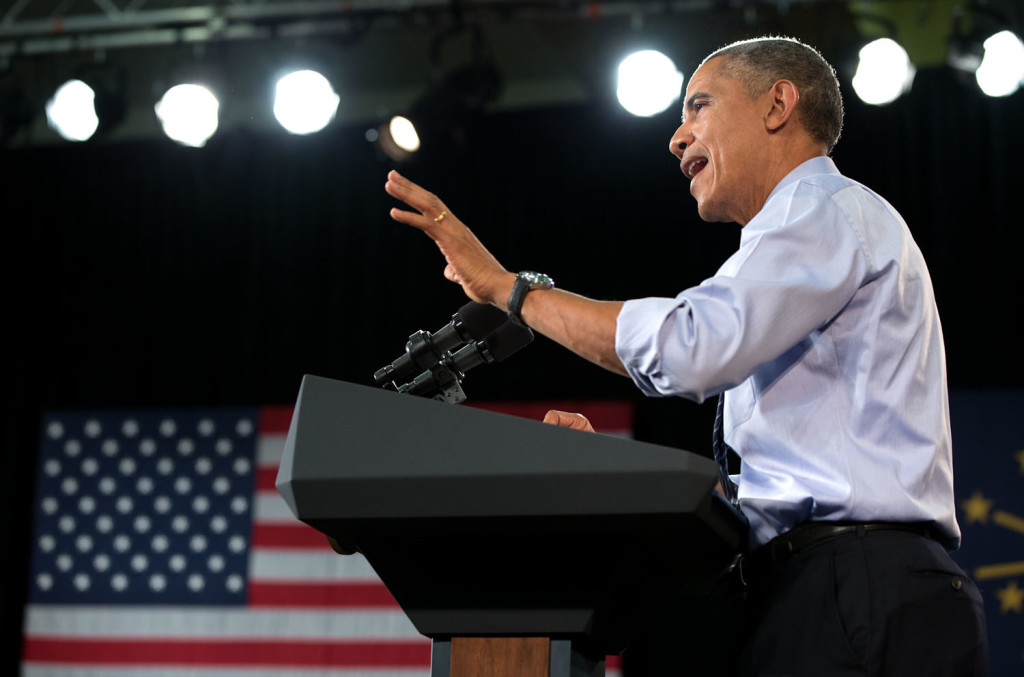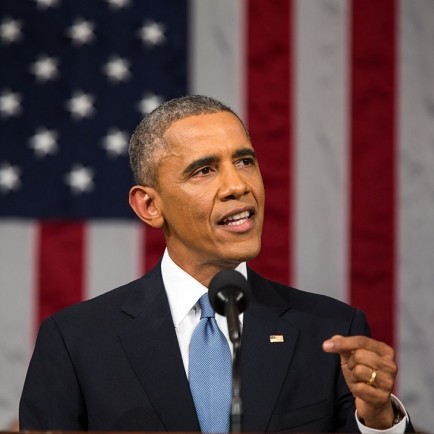Obama proposes free community college

Photo courtesy WHITEHOUSE.GOV
EAST PEORIA — President Barack Obama promised to make community college “as free and universal as high school” in his 2015 State of the Union address. This marks the first time that a sitting president has given a huge declaration to community colleges.
Illinois Central College President John Erwin said that this is a historic proclamation.
“I know of no other United States president that has used an entire address on community college,” Erwin said, referencing the speech Obama made in Knoxville, Tenn. in January to introduce the plan.
The plan, called America’s College Promise, calls for the federal government to pay 75 percent of the cost of community college tuition. The rest of the cost must be provided by the state.
“The plan acts as a blanket,” Erwin said.
America’s College Promise would be applied after all other government provided financial aid is given.
However, Erwin believes that the plan itself still has too many unanswered questions before it can pass the judgement of voters. Because the plan calls for states to pay 25 percent of the costs for college, a large financial burden will go onto the state.
“The question turns into if the state can support that or not,” Dr. Erwin said. “Does the state of Illinois have the revenue to pay for America’s College Promise?”
At the same time, some of the requirements to be eligible for the program are obscure. America’s College Promise requires that a student have a 2.5 GPA to qualify.
“Coming into college, student’s don’t have a college GPA,” Erwin said. “So are they not eligible on their first semester?”
Another aspect of the program is the fate of universities. Because the president wants to put emphasis on community colleges over traditional universities, there is no way to predict how the universities will respond.
“In the details reside the questions,” Erwin said, “and there may be answers to these questions.”
Other plans have been brought forth by politicians. Illinois Senator Dick Durbin, in an address to the senate before the State of the Union address, stated that we live in a “K-14” society.
Erwin, however, sees the new changes as an opportunity to keep the community college structure sacred.
“We are rare, we are successful and, I believe, unique in education,” Erwin said. “Let’s preserve it, but also, let’s enhance it.”
In the end, Erwin believes that universities will respond, and all college students will benefit. He also believes that this shift in focus to community colleges brings out the better qualities of community colleges.
“It brought important national attention to the access and affordability of community colleges for our nation’s people,” Erwin said. “Community colleges and their mission will be more understood, and hopefully there will be appropriate support for our mission.”

